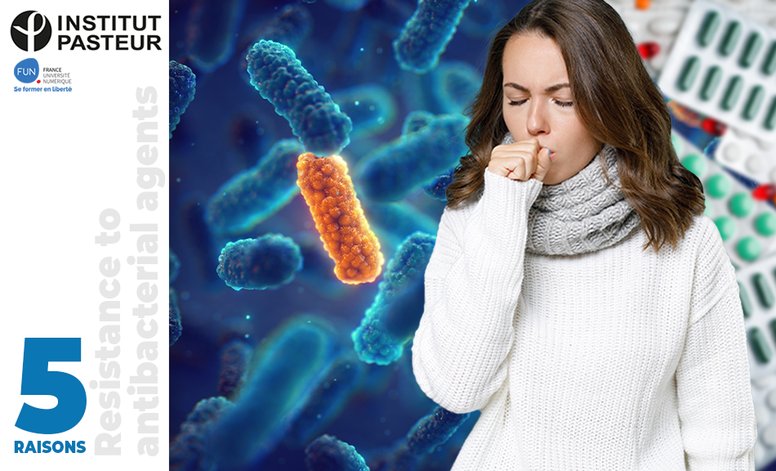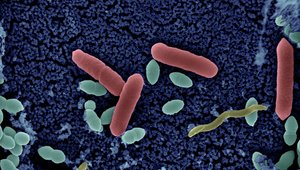News
5 Reasons to take the course "Resistance to antibacterial agents"
Categories
About the course11/25/2022

The discovery of antibiotics in the first part of the 20th century led to the cure of many life-threatening infectious diseases and antibiotic therapy. Together with hygiene and vaccination, it was a predominant factor in increasing lifespan of recent decades. However, very soon afterwards, bacteria developed mechanisms of resistance to these treatments. This resistance has been favored and amplified by poorly controlled use of antibiotics, in humans, but also in animals, and in particular livestock, where antibiotics are often given for nutritional reasons. At present, some germs are resistant to all known antibiotics, thereby increasing mortality from infectious disease. WHO has calculated that if nothing is done in the coming years, mortality from multi-resistant infections will be responsible, by 2050, for 10 million deaths worldwide.
Here are 5 important reasons to follow this MOOC :
Reason No. 1: Become aware of the importance, the urgency, and the seriousness of the situation due to the increase in the resistance of bacteria to anti-bacterial treatments.
Reason No. 2: Realize that it is a global health problem, affecting humans, livestock, and the environment.
Reason No. 3: Understand how bacteria develop resistance to treatment and how to identify it.
Reason No. 4: Understand the means implemented to control the prescription of antibiotics, in hospitals, community medicine and on farms, and slow down the spread of resistance.
Reason No. 5: Discover ways to circumvent resistance by discovering new antibiotics or innovative alternative treatments.
To register and learn more, click here
Institut Pasteur
Course starts: January 10, 2023
Registration deadline: March 7, 2023
It is part of the Digital Diploma of Infectious Diseases of the Institut Pasteur (DNM2IP). https://www.pasteur.fr/fr/DNM2IP
 CategoryCertificate
CategoryCertificateRelated posts
Welcome to the nanoworld!
Categories
About the course5 reasons to follow the MOOC "Science and entrepreneurship: the fundamentals”
Categories
About the course5 raisons de suivre le MOOC «Comment évaluer l'impact des Jeux Olympiques et Paralympiques ?»
Categories
About the course




